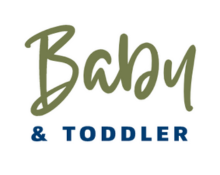
Breastfed babies are less likely to experience constipation compared to formula-fed babies, as breast milk is easily digested and contains the appropriate balance of nutrients. However, if your breastfed baby is experiencing constipation, here are some strategies you can try:
Increase breastfeeding frequency: Breastfeed your baby more frequently to ensure they are getting enough hydration and to stimulate bowel movements. Aim for at least 8 to 12 breastfeeding sessions per day, or as per your baby’s cues.
Ensure a proper latch and breastfeeding technique: Make sure your baby is latching well and effectively removing milk from the breast. Proper breastfeeding technique can help prevent swallowing excessive air, which can contribute to constipation.
Watch your diet: Some foods in your diet may contribute to constipation in your baby. Consider whether any particular foods you’re consuming, such as certain vegetables or spicy foods, could be causing the issue. You can try eliminating these foods from your diet for a period of time to see if it makes a difference.
Offer more hindmilk: Make sure your baby is receiving enough hindmilk during breastfeeding. Hindmilk is the richer, fatty milk that comes later in a feeding and can have a laxative effect. Encourage your baby to breastfeed on one breast for a longer duration to ensure they receive the hindmilk.
Massage your baby’s tummy: Gently massage your baby’s tummy in a clockwise motion to help stimulate bowel movements. This can be done before or after feedings.
Bicycle leg exercises: Lay your baby on their back and gently move their legs in a bicycling motion. This can help relieve gas and stimulate the digestive system.
Consult with a healthcare provider: If your baby’s constipation persists or is accompanied by other concerning symptoms, such as vomiting or significant discomfort, it’s important to consult with your healthcare provider. They can assess your baby’s condition and provide appropriate guidance and support.
It’s important to note that breastfed babies may have variations in their bowel movements, and some can go several days without passing stool without it being considered constipation. However, if your baby is showing signs of discomfort or if you have concerns, it’s always best to consult with a healthcare provider for personalized advice.
